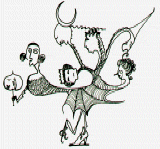 |
Antique Boxes at the Sign of the Hygra 2 Middleton Road, London, E8 4BL, UK. PHONE: 00 44 (0)20 7254 7074 News | Buying | email | Online History of boxes | The Schiffer Book | |
|
|
| next picture| previous picture | slide show | thumbnail index
_____________________________________________________________________________________________________________________________________
____________________________________________________________________________________________________________________________________
____________________________________________________________________________________________________________________________________
____________________________________________________________________________________________________________________________________
____________________________________________________________________________________________________________________________________ For pictures of coins: http://chinesecoins.lyq.dk/ZoomGallery/Ming.htm
The Wanli Emperor (simplified Chinese: 万历; traditional Chinese: 萬曆; pinyin: W�nl�; Wade�Giles: Wan-li) (4 September 1563 � 18 August 1620) was emperor of China (Ming dynasty) between 1572 and 1620. His era name means "Ten thousand calendars". Born Zhu Yijun, he was the Longqing Emperor's third son. His rule of forty-eight years was the longest in the Ming dynasty and it witnessed the steady decline of the dynasty. http://en.wikipedia.org/wiki/Wanli_Emperor
Emperor Shenzong of Song (Chinese: 宋神宗, Pinyin: S�ng Sh�nzōng) (May 25, 1048 � April 1, 1085) was the sixth emperor of the Chinese Song Dynasty. His personal name was Zhao Xu. He reigned from 1067 to 1085. http://en.wikipedia.org/wiki/Emperor_Song_Shen-Zong. The Guangxu Emperor (14 August 1871 � 14 November 1908), born Zaitian of the Manchu Aisin Gioro clan, was the eleventh emperor of the Qing Dynasty, and the ninth Qing emperor to rule over China. His reign lasted from 1875 to 1908, but in practice he ruled, under Empress Dowager Cixi's influence, only from 1889 to 1898. He initiated the Hundred Days' Reform, but was abruptly stopped when Cixi launched a coup in 1898, after which he was put under house arrest until his death. His regnal name means "glorious succession".
Puyi (7 February 1906 � 17 October 1967), of the Manchu Aisin Gioro clan, was the last Emperor of China, When he ruled as Emperor of the Qing Dynasty from 1908 to 1912 and during his brief restoration in 1917, Puyi's era name was Xuantong, so he was known as the Xuantong Emperor (simplified Chinese: 宣统皇帝; traditional Chinese: 宣統皇帝; pinyin: Xuāntǒng Hu�ngd�) during those two periods of time. http://en.wikipedia.org/wiki/Puyi The Daoguang Emperor (Chinese: 道光帝, pinyin: D�oguāngd�, Wade-Giles: Tao-kuang; Manchu: ᡩᠣᡵᠣ ᡝᠯᡩᡝᠩᡤᡝ, Doro Eldengge Hūwangdi; 16 September 1782 � 25
The Jiaqing Emperor (Chinese: 嘉慶帝; pinyin: Jiāq�ngd�; http://en.wikipedia.org/wiki/Jiaqing_Emperor ning + ms he Prince of Tang (唐王, ?-1647) reigned as the Shaowu (紹武) Emperor of the Southern Ming dynasty from 1646-1647. His era name means "Martial thread". His personal name was Zhu Yuyu� (朱聿ਮ?;[1] pinyin: Zhū Y�yue).http://en.wikipedia.org/wiki/Zhu_Yuyue,_Prince_of_Tang The Qianlong Emperor (Mandarin pronunciation: [tɕʰi̯ɛ̌n lu̯ə̌ŋ tɨ̂]) (Chinese: 乾隆帝; pinyin: Qi�nl�ngd�; http://en.wikipedia.org/wiki/Qianlong_Emperor Taiping Tianguo or Tai Ping Tian Guo (simplified Chinese: 太平天国; traditional Chinese: 太平天國; pinyin: T�i P�ng Tiān Gu� http://en.wikipedia.org/wiki/Taiping_Tianguo The Qianlong Emperor (Mandarin pronunciation: [tɕʰi̯ɛ̌n lu̯ə̌ŋ tɨ̂]) (Chinese: 乾隆帝; pinyin: Qi�nl�ngd�; http://en.wikipedia.org/wiki/Qianlong_Emperor The Yongzheng Emperor (Chinese: 雍正帝; pinyin: yōngzh�ngd�; Wade�Giles: Yung Cheng Ti, Manchu: ᡥᡡᠸᠠᠯᡳᠶᠠᠰᡠᠨ ᡨᠣᠪ, Hūwaliyasun Tob hūwangdi, Mongolian:Nairalt T�v Khaan; 13 December 1678 � 8 October 1735), born Yinzhen (Chinese: 胤禛; pinyin: y�nzhēn ; Manchu language: ᡳᠨ ᠵᡝᠨ ; M�llendorff transliteration: in jen),http://en.wikipedia.org/wiki/Yongzheng_Emperor
The Hongwu Emperor (Chinese: 洪武帝; Wade�Giles: Hung-wu Ti; 21 October 1328 � 24 June 1398), known variably by his given name Zhu Yuanzhang (Chinese: 朱元璋; Wade�Giles: Chu Yuan-chang) and by his temple name Taizu of Ming (Chinese: 明太祖; literally "Great Ancestor of Ming"), was the founder and first emperor of the Ming Dynasty of China. His era name, Hongwu, means "vastly martial". http://en.wikipedia.org/wiki/Hongwu_Emperor
Wu Sangui (Chinese: 吳三桂; pinyin: W� Sāngu�; Wade�Giles: Wu San-kuei; style name Changbai (長白) or Changbo (長伯); 1612 � October 2, 1678) was a Chinese military general who was instrumental in the fall of the Ming Dynasty and the establishment of the Qing Dynasty in 1644. Considered by traditional scholars as a traitor to both Ming, and ultimately, Qing, Wu in 1678 declared himself Emperor of China and ruler of the Great Zhou Dynasty, but his revolt was eventually quelled by the Kangxi Emperor of the Qing Dynasty. http://en.wikipedia.org/wiki/Wu_Sangui
Chinese: Tongzhi (同治) The only surviving son of the Xianfeng Emperor and Empress Dowager Cixi, Tongzhi attempted political reform in the period of the Tongzhi Restoration. His first regnal name was Qixiang (祺祥; Manchu: Feng�engge Sabingga), but this name was later abandoned by Cixi in favour of Tongzhi, a contraction of the classical phrase tonggui yu zhi (simplified Chinese: 同归与治; traditional Chinese: 同歸與治), which means "restoring order together".[citation needed] An alternate interpretation reads it as "mother and son co-emperors" (Chinese: 母子同治天下),[citation needed] which fits the state of affairs, as the empress dowager wielded real power and ruled behind the scenes. The traditional Chinese political phrase "attending audiences behind a curtain" (simplified Chinese: 垂帘听政; traditional Chinese: 垂簾聽政; pinyin: chu� li�n tīng zh�ng) was coined to describe Cixi's rule through her son. http://en.wikipedia.org/wiki/Tongzhi_Emperor
News | Buying | email | Online History of boxes | The Schiffer Book | Request current list of available sewing boxes.
|